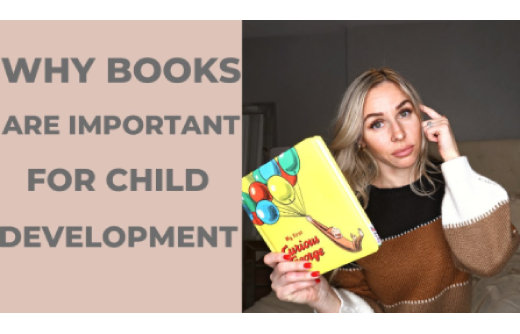“A room without books is like a body without a soul.”
– Marcus Tullius Cicero
This quote above by the great Roman philosopher and politician, Marcus Tullius Cicero, best captures how important reading is for children to develop their language skills. Reading books should be an integral part of every child’s education. Even if your child attends one of those ‘reading camps’ – where they go through all kinds of educational activities related to reading and writing – that would not replace the need for you as a parent to encourage your child to read books at home. There seems to be this misconception in our society these days that we can teach everything we need to know about life and various other subjects via television and the internet; it’s a notion that’s become even more prevalent in this day and age when we have technology taking over every aspect of our life. Allow me to take a moment to shatter that myth. One, there is an obvious difference between reading something on a screen vs reading it from a piece of paper or even from the wall itself (in case you were thinking about graffiti). Two, television programmes these days are mostly about entertainment – they hardly provide anything educational. Three, what do kids learn from playing video games? Nothing! The only thing they actually learn is how to handle a controller better and how to aim a gun at someone’s head – that’s not exactly what you want your child learning at their tender age. There has been conclusive evidence drawn up by several psychologists showing how children learn differently when they read books at home – compared to simply watching television. We all know of the benefits of reading for adults; it’s no different for kids either.
Books are important for a child’s development because the act of reading stimulates the imagination and helps in creating pattern recognition, adds to logical thinking; enhances vocabulary; widens one’s knowledge base (and also their general awareness); improves focus on tasks; boosts self-confidence, allows leeway for creative thinking through exploring various possibilities; helps develop analytical skills; increases concentration power; makes one more sensitive towards others’ feelings/scenarios/situations etc.; develops empathy; strengthens emotional bonds between parents and their children (parents usually choose to share stories from the books they read when they were children with their own kids) etc.
A lot of parents, unfortunately, are reluctant to get their children any sort of book because there is this notion that reading at a young age will prevent them from interacting with people around them – it’s quite ironic considering the fact that most social skills these days come from interactions observed on television! Also, some parents do not prioritize reading or providing suitable books for their kids since they themselves are not big readers–it is important to remember here that reading habits are formed by the time one turns 6 years old; if your child does not get exposed to enough literature before then–the chances of him/her being a big fan of books later in life fall drastically. If you want your child to develop a liking for reading and acquire logical thinking and greater verbal skills, then it is imperative that you provide them with books at an early age. Parents often complain that their children do not read enough on their own; the best thing would be to either get them books they like or just take some time out of your schedule every day and sit down with your kid to read something together.
There are several benefits of letting the kids read on their own as well–the biggest one being giving you parents some much-needed ‘me’ time! This also allows children to discover on their own what type of book interests them most, whether graphic novels/comics might interest them etc.; it helps in cultivating curiosity about various genres. It’s also an effective way of spotting what your child is into (sports, animals, fiction, poetry etc.) and then letting them explore that field further–through videos/articles/interviews/documentaries etc.
Books are important for a child’s development because they can help them make sense of the world around them; introduce them to various possibilities; broaden their understanding about different cultures (we still know very little about other nations’ cultures largely due to media biases). According to psychologists, children learn how to read deeply when they are exposed to reading materials that have interesting content—this has been found to be especially true with books written for infants. Also, if you want your child to become a good reader later in life – it is imperative that you provide them with material that interests them.
Books are important for a child’s development because it helps in the formation of abstract thinking and imagination skills; improves focus, allows one to engage in deep reading that is critical for comprehension; makes one more sensitive towards the feelings of others etc. The earlier your kid gets started with books – the easier it will be for him/her to develop these key skills later on in life.









